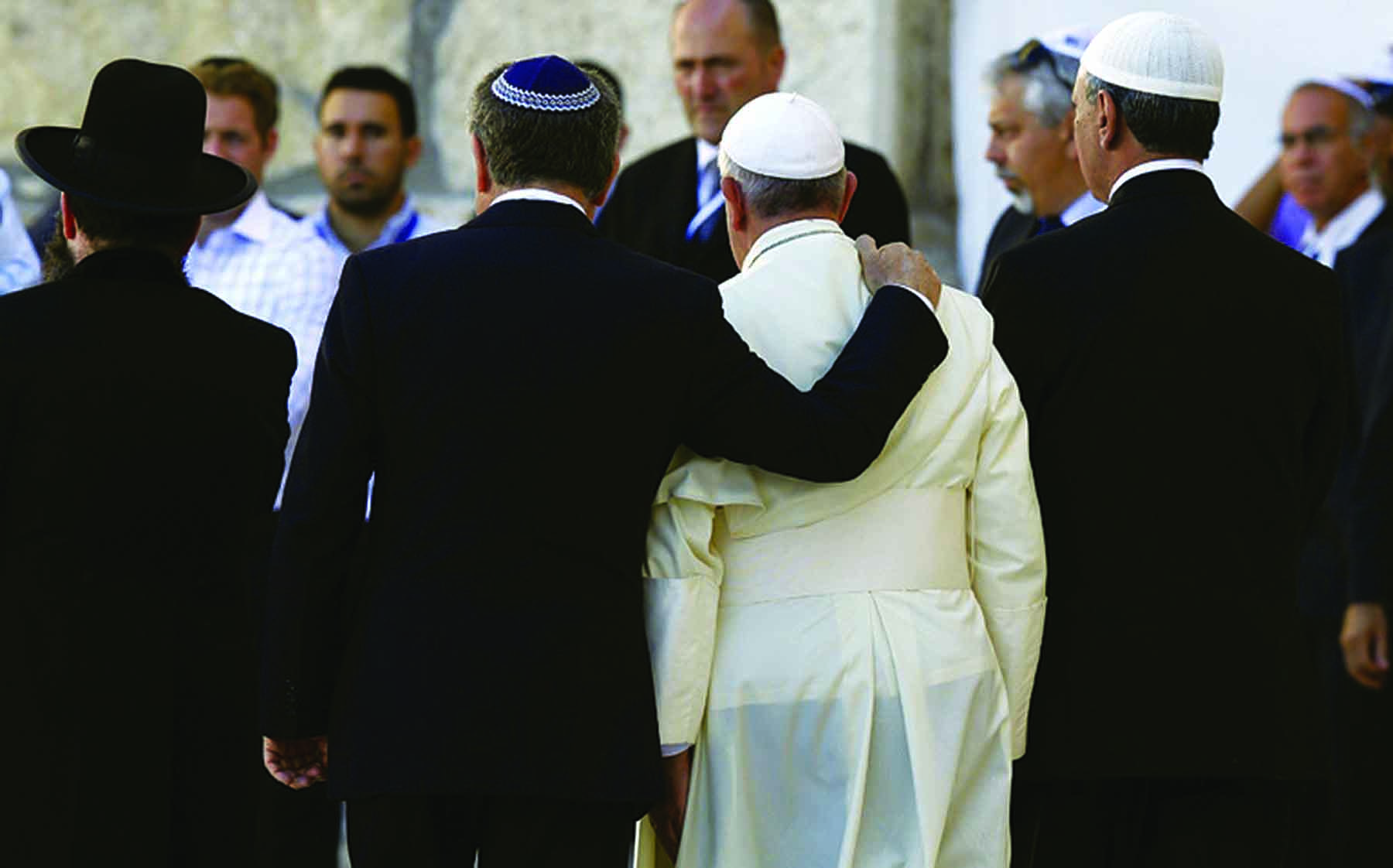October 18, 2016
The Last Word: Bound together by Providence

By DR. ARTHUR P. URBANO, JR.
“DIALOGUE AND FRIENDSHIP WITH THE CHILDREN OF ISRAEL ARE PART OF THE LIFE OF JESUS’ DISCIPLES.”
These words from Pope Francis’ 2013 apostolic exhortation The Joy of the Gospel stress the unbreakable bond that exists between Jews and Christians. The pope’s words were not new or revolutionary. They follow in the tradition of his predecessors, especially St. John Paul II and Pope Benedict XVI, and proclaim anew the message of the Second Vatican Council’s document Nostra Aetate. But in 1965, in the wake of the Holocaust, what this document said was revolutionary: Christians must repudiate anti-Semitism and the centuries-long “teaching of contempt” (as the Jewish- French historian Jules Isaac called it), namely that God had abandoned the Jewish people because of the death of Jesus.
With Nostra Aetate, the Catholic Church did not simply recognize the Jewish roots of Christianity but affirmed the faith, beauty, and venerable tradition of living Judaism today. The 2,000-year history of Jewish-Christian relations has been fraught with tension, mistrust, discrimination, and tragic violence. It is encouraging that 50 years after Nostra Aetate we see a renewed relationship of collaboration, dialogue, and friendship between Jews and Christians, transformed “from enemies to brothers,” as a recent book by John Connelly puts it.
As a Catholic and Dominican institution, Providence College is heir to this important tradition of interreligious understanding and cooperation. As we reflect on the College’s history in this centennial year, we find that PC was, in many ways, a pioneer of this interreligious friendship long before Vatican II and Nostra Aetate. In its earliest years, the Irish Dominicans embraced the sons of Jewish immigrants living in Smith Hill and Greater Providence. When other universities shut their doors because of discriminatory quotas, or economic barriers would have made a college education impossible, the gates of River Avenue were opened wide.
In the late 1920s, a mere decade after the College opened, the first Jewish students came to PC. The number steadily increased throughout the 1930s and into the pre-war period — an era that saw the most virulent and evil manifestation of anti-Semitism in the Western world — when the percentage of incoming freshmen who were Jewish reached double digits. Along with Dr. Jennifer Illuzzi, assistant professor of history, I have been studying this little-known chapter of the College’s history. We have been interviewing many of PC’s Jewish alumni from this early period. We are learning what it was like to be Jewish at a Catholic college in those years and seeking to understand how the historical reception of non-Catholic students demonstrated the College’s Catholic and Dominican mission and anticipated the ideals of Nostra Aetate.
Today at Providence College, students have multiple opportunities to learn about and be shaped by what is often called the “Judaeo-Christian heritage.” Development of Western Civilization, theology, philosophy, and history courses are just some of the places. But those of us who teach these courses are met with a challenge: “Judaeo-Christian” is only meaningful when the “Judaeo-” side of this heritage is permitted to speak and teach. After all, this is the only way the mutual understanding of Nostra Aetate can take place: through engaging, dialoguing, and confronting difference, while celebrating what is held in common.
Another opportunity comes in the bi-annual Theological Exchange Between Catholics and Jews lecture series under the auspices of the Department of Theology. Each year, local and national experts speak on the historical and theological issues that have characterized the long and difficult (and now hopeful) history of Jewish-Christian relations. The lectures have been eye-opening for many, and with a large representation of the Rhode Island Jewish community regularly present, the series has afforded opportunities for engagement, discussion, and friendship among neighbors who otherwise might never have benefitted from knowing each other.
As the College crosses the threshold into its next 100 years, many challenges face all of us — students, faculty, administration, and alumni — as we reflect on who we are and who we aspire to be. Digging deep into our institutional history, we learn that the College faced and dealt with questions of ethnic and religious diversity from the very beginning — and this has been part of its Catholic and Dominican identity. Those days are a long-forgotten past to most, but perhaps revisiting those days can teach us something about our present and future.
Dr. Arthur P. Urbano, Jr. is an associate professor of theology at PC and the coordinator of the Theological Exchange Between Catholics and Jews.





